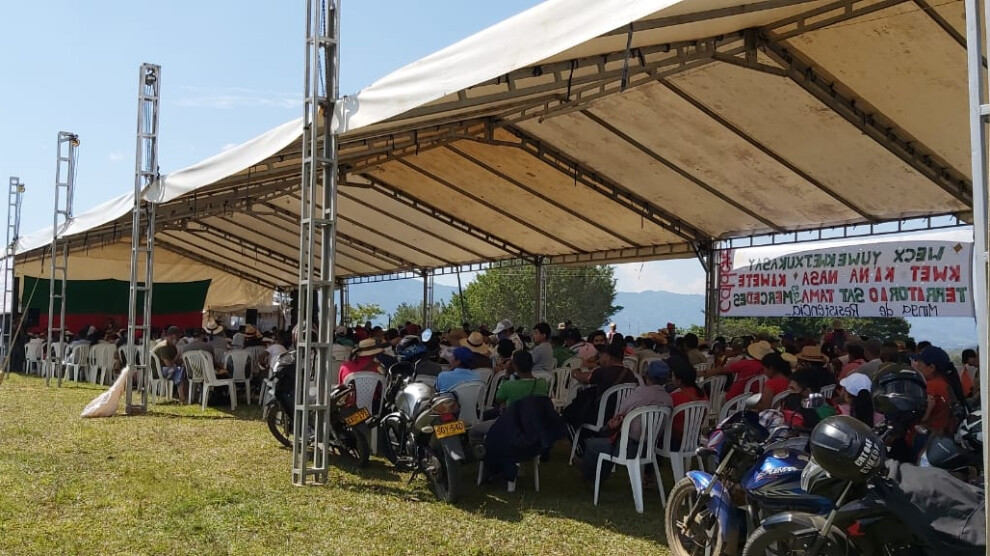Indigenous people in Colombia march for life, peace and democracy
Colombia's indigenous people are marching since last Friday for the protection of life, territory, democracy and peace. The Minga march will end on Friday in Bogota.
Colombia's indigenous people are marching since last Friday for the protection of life, territory, democracy and peace. The Minga march will end on Friday in Bogota.

Colombia's Indigenous movement "Collective Action in Defense of Life, Territory, Democracy, Justice, and Peace" (Minga) abandoned the dialogue process with the government because President Ivan Duque was not present at the meeting, on Monday.
Indigenous leaders said: "We wanted to dialogue directly with President Duque. Since he did not show up, we will keep our word." The Minga march then is on its way to Bogota since Tuesday.
Some 8,000 indigenous people are marching, accompanied by a group of Cali's public health workers on their journey towards Bogota, to avoid a COVID-19 outbreak inside the march.
Minga is a word of indigenous Quechua origin that refers to a collective effort for the common good and that in Colombia similarly refers to an organized protest for Indigenous rights. The first Minga mobilization was in 2004.
On October 10, Feliciano Valencia, a past leader of the Cauca Regional Indigenous Council (CRIC) and now a Senator, tweeted: “The President’s first response to the political debate raised by the Minga has been to militarize the roads.”